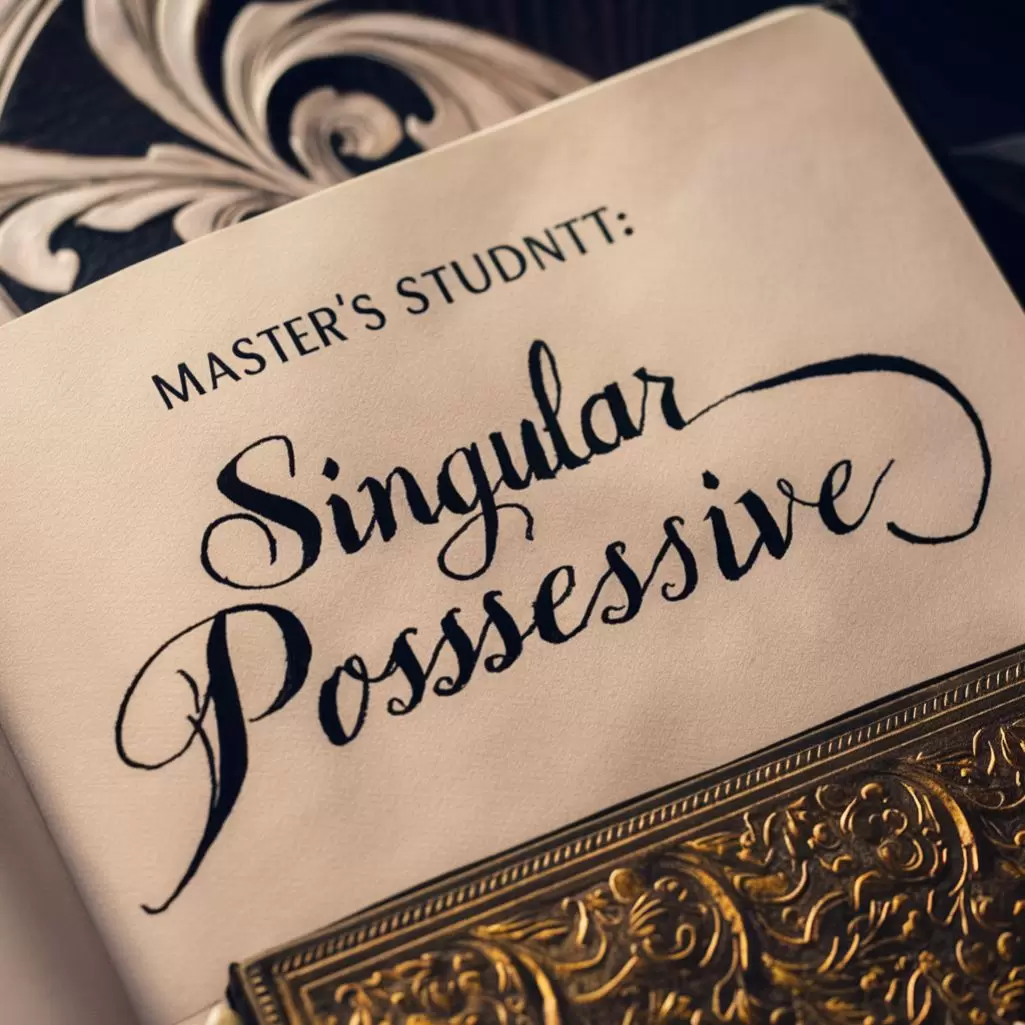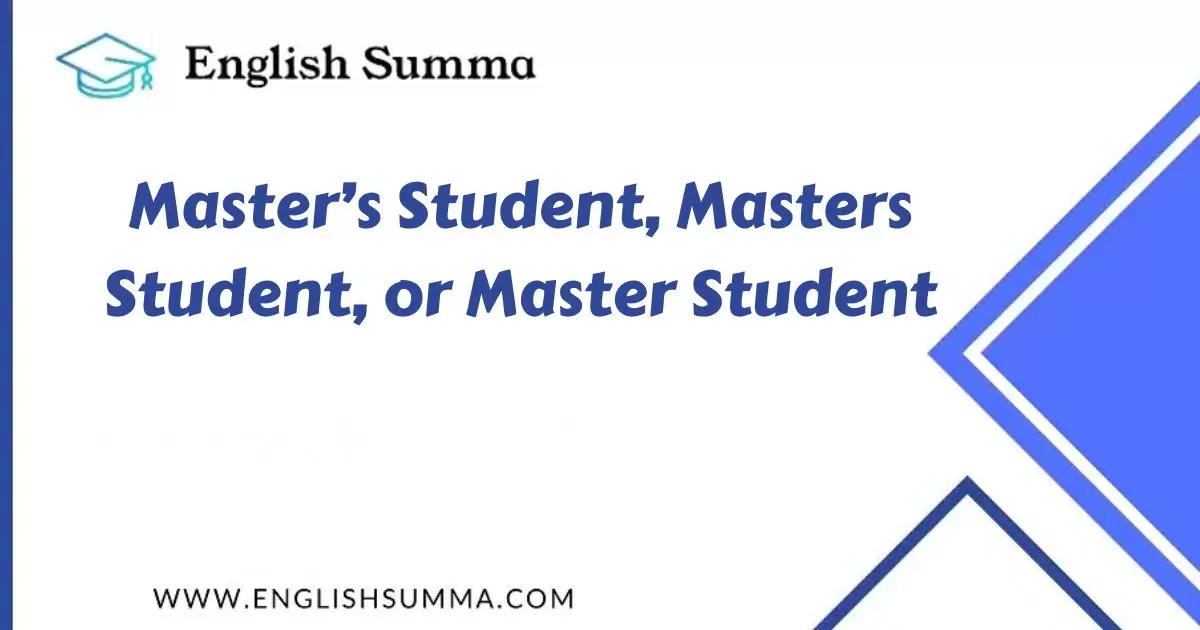Understanding the Basics
Before delving into the nuances of each term, it’s essential to grasp the fundamental principles underlying possessives in English. In general, possessives indicate ownership or association, typically formed by adding an apostrophe followed by an “s” (‘s) to nouns.
However, when dealing with plural nouns ending in “s,” the apostrophe alone suffices to denote possession.
The Apostrophe’s Role
The apostrophe serves as a crucial marker for possession in English grammar. It not only indicates ownership but also plays a pivotal role in distinguishing between possessive and non-possessive forms. Its placement can alter the meaning of a phrase or sentence significantly.
Master’s Student: Singular Possessive

The term Master’s Student refers to a student pursuing a master’s degree, where “Master’s” acts as a possessive modifier indicating that the student belongs to or is associated with the master’s program.
Scenario Example: Emily is a diligent Master’s student, focusing on her thesis research in environmental science.
In this example, “Master’s” indicates that Emily is a student affiliated with or belonging to the master’s program. The apostrophe followed by “s” denotes possession, signifying that the student is under the domain or supervision of the master’s degree program.
Masters Student: Plural Possessive
Conversely, Masters Student is a plural possessive form used to denote a group of students pursuing master’s degrees. In this construction, the absence of the apostrophe after “Masters” is intentional, as the plural noun already ends in “s.”
Scenario Example: The conference room was filled with ambitious Masters students, each presenting their groundbreaking research projects.
Here, “Masters” functions as a plural possessive modifier indicating that the students collectively possess or are associated with master’s degrees. The absence of the apostrophe after “Masters” distinguishes it from the singular possessive form, reinforcing the plural nature of the group.
Master Student: Compound Noun

In contrast to the possessive forms discussed above, Master Student represents a compound noun where “Master” serves as an attributive noun modifying “Student.” This construction implies that the student exhibits mastery or expertise in a particular field rather than being enrolled in a master’s degree program.
Scenario Example: As a seasoned linguist, Sarah was regarded as a master student of phonetics and syntax.
Here, “Master” functions as an adjective describing the level of proficiency or expertise attained by Sarah in linguistics. The absence of the possessive marker indicates that “Master” is not possessing or associated with anything but is rather describing the type or quality of the student.
Masters’ Student: Plural Possessive with Joint Ownership
Occasionally, the term Masters’ Student may be encountered, especially in contexts where joint possession or ownership is implied among multiple entities offering master’s programs. In this form, the apostrophe comes after the plural noun “Masters,” indicating that the students belong to or are associated with multiple master’s programs.
Scenario Example: The scholarship was awarded to the most promising Masters’ students from various prestigious universities.
In this instance, “Masters’” denotes that the students are affiliated with or belong to multiple master’s programs, suggesting a shared or joint ownership among these programs. The placement of the apostrophe after “Masters” emphasizes the collective possession or association with multiple entities.
Conclusion
Navigating the intricacies of possessives and compound nouns in English can be challenging, especially when faced with variations like “Master’s Student,” “Masters Student,” and “Master Student.“
However, understanding the nuances of each term is crucial for precise communication, particularly in academic and formal writing contexts. By recognizing the subtle differences in usage and employing them appropriately, writers can convey their intended meaning effectively while adhering to grammatical conventions.
Whether discussing individual affiliation with a master’s program, collective possession among students, or the mastery level of expertise, clarity and precision in language usage remain paramount.
Related Post:

Meet Steven Smith, the driving force behind “English Summa.” Armed with a Bachelor’s Degree in Linguistics and a passion for teaching, Steven is dedicated to unraveling language intricacies for eager minds. Join him on a journey of linguistic discovery through Language Odyssey—a space where education meets inspiration, and the beauty of language unfolds.

